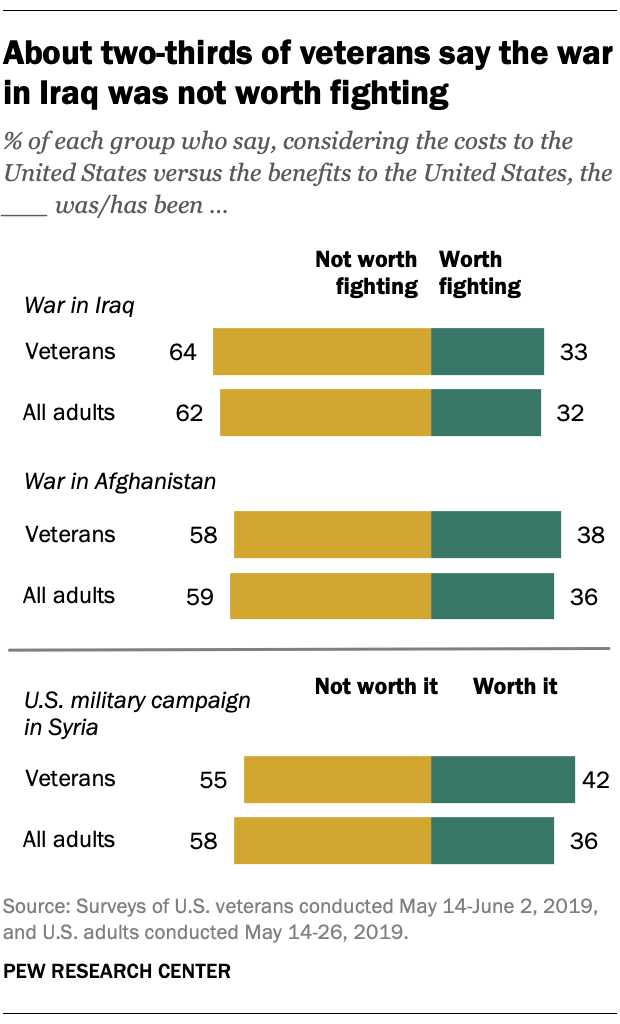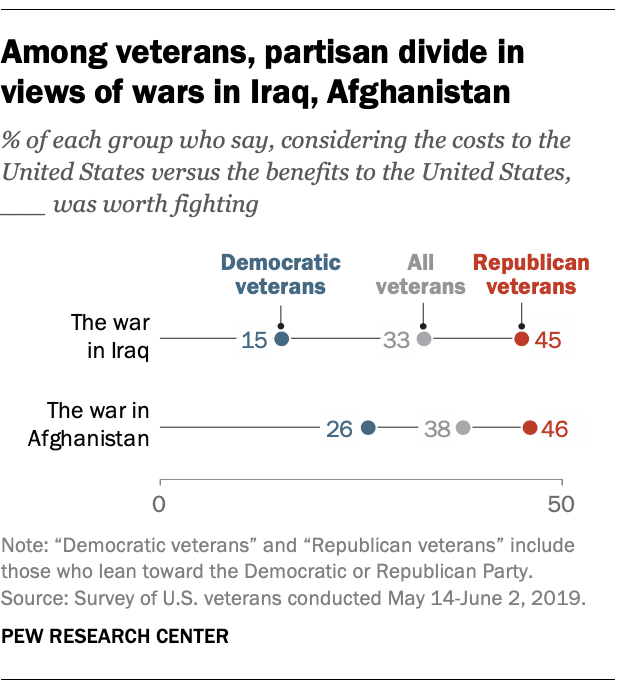Majorities of U.S. veterans, public say the wars in Iraq and Afghanistan were not worth fighting

Nearly 18 years since the start of the war in Afghanistan and 16 years since the U.S. invasion of Iraq, majorities of U.S. military veterans say those wars were not worth fighting, according to a new Pew Research Center survey of veterans. A parallel survey of American adults finds that the public shares those sentiments.

Among veterans, 64% say the war in Iraq was not worth fighting considering the costs versus the benefits to the United States, while 33% say it was. The general public’s views are nearly identical: 62% of Americans overall say the Iraq War wasn’t worth it and 32% say it was. Similarly, majorities of both veterans (58%) and the public (59%) say the war in Afghanistan was not worth fighting. About four-in-ten or fewer say it was worth fighting.
Veterans who served in either Iraq or Afghanistan are no more supportive of those engagements than those who did not serve in these wars. And views do not differ based on rank or combat experience.
 Views do differ significantly by party, however. Republican and Republican-leaning veterans are much more likely than veterans who identify with or lean toward the Democratic Party to say the wars in Iraq and Afghanistan were worth fighting: 45% of Republican veterans vs. 15% of Democratic veterans say the war in Iraq was worth fighting, while 46% of Republican veterans and 26% of Democratic veterans say the same about Afghanistan. The party gaps are nearly identical among the public.
Views do differ significantly by party, however. Republican and Republican-leaning veterans are much more likely than veterans who identify with or lean toward the Democratic Party to say the wars in Iraq and Afghanistan were worth fighting: 45% of Republican veterans vs. 15% of Democratic veterans say the war in Iraq was worth fighting, while 46% of Republican veterans and 26% of Democratic veterans say the same about Afghanistan. The party gaps are nearly identical among the public.
Views on U.S. military engagement in Syria are also more negative than positive. Among veterans, 42% say the campaign in Syria has been worth it, while 55% say it has not. The public has very similar views: 36% say U.S. efforts in Syria have been worthwhile, while 58% say they have not.
Among veterans, these views are consistent across era of service, rank and combat experience. Republican veterans are significantly more likely than Democrats to say the Syrian campaign has been worth it (54% vs. 25%).
No comments:
Post a Comment